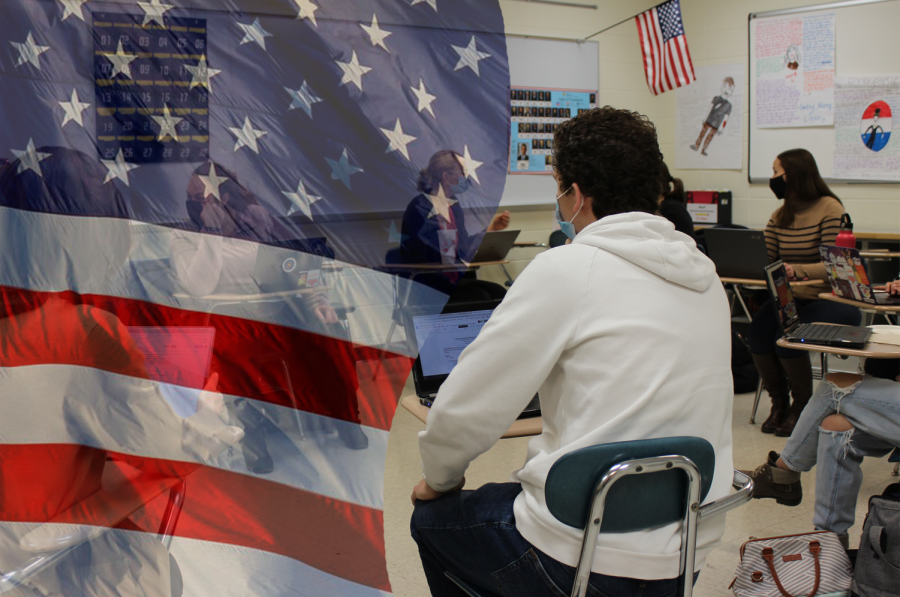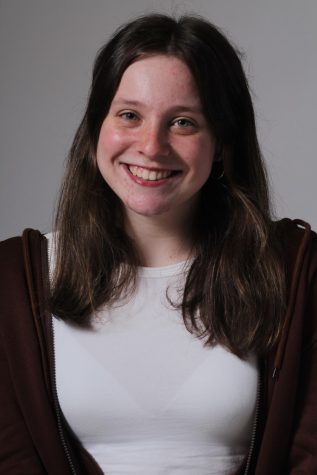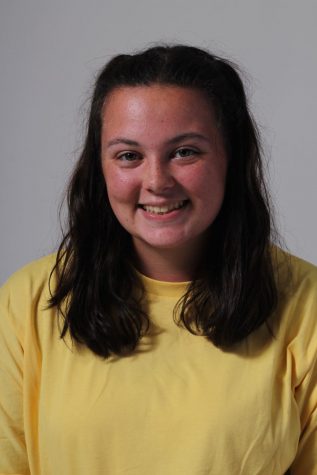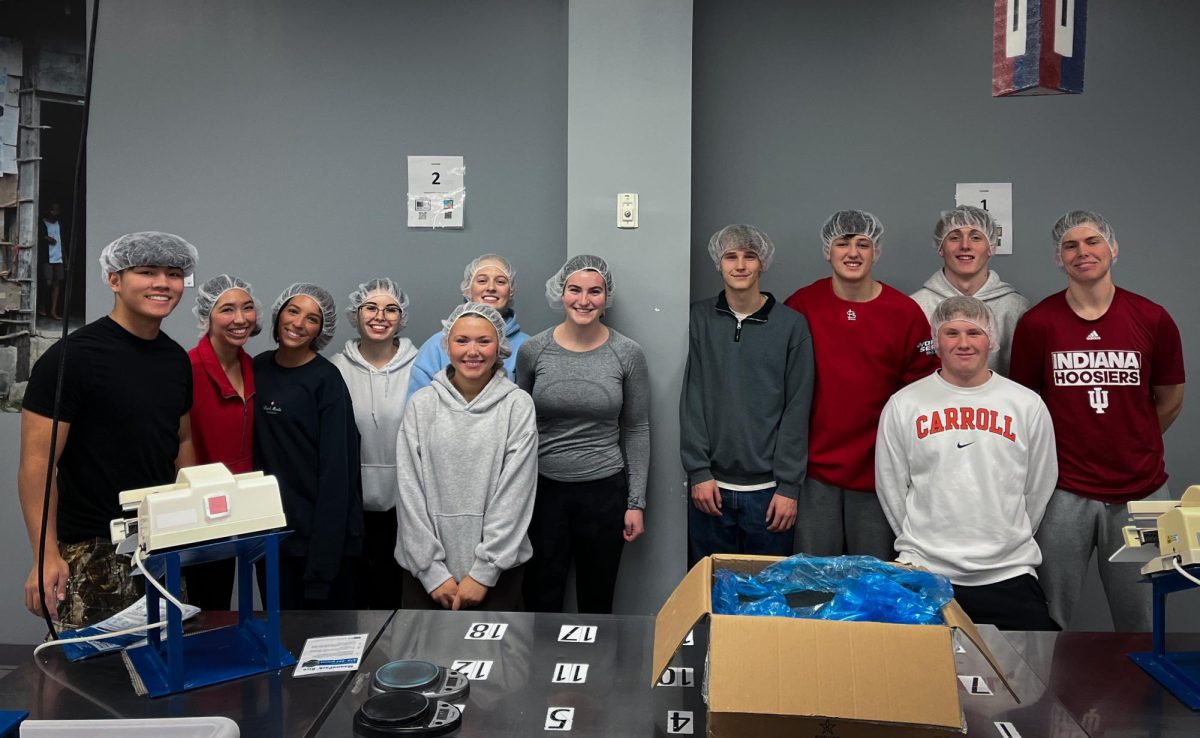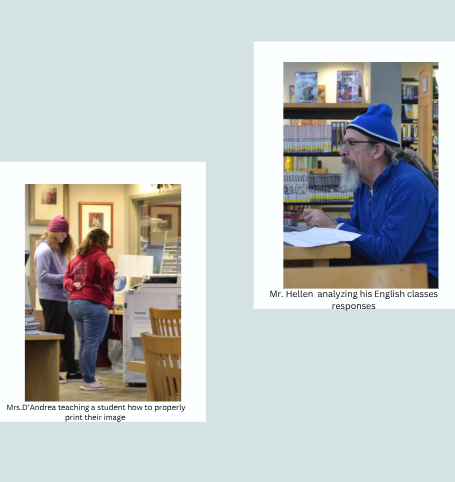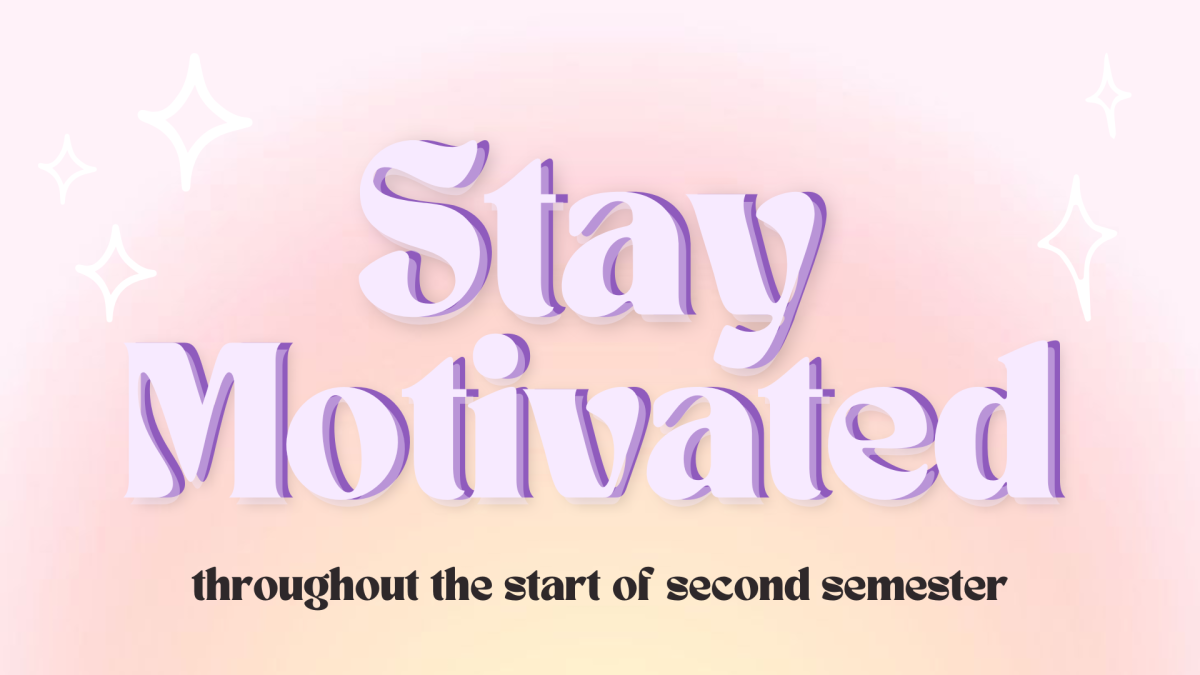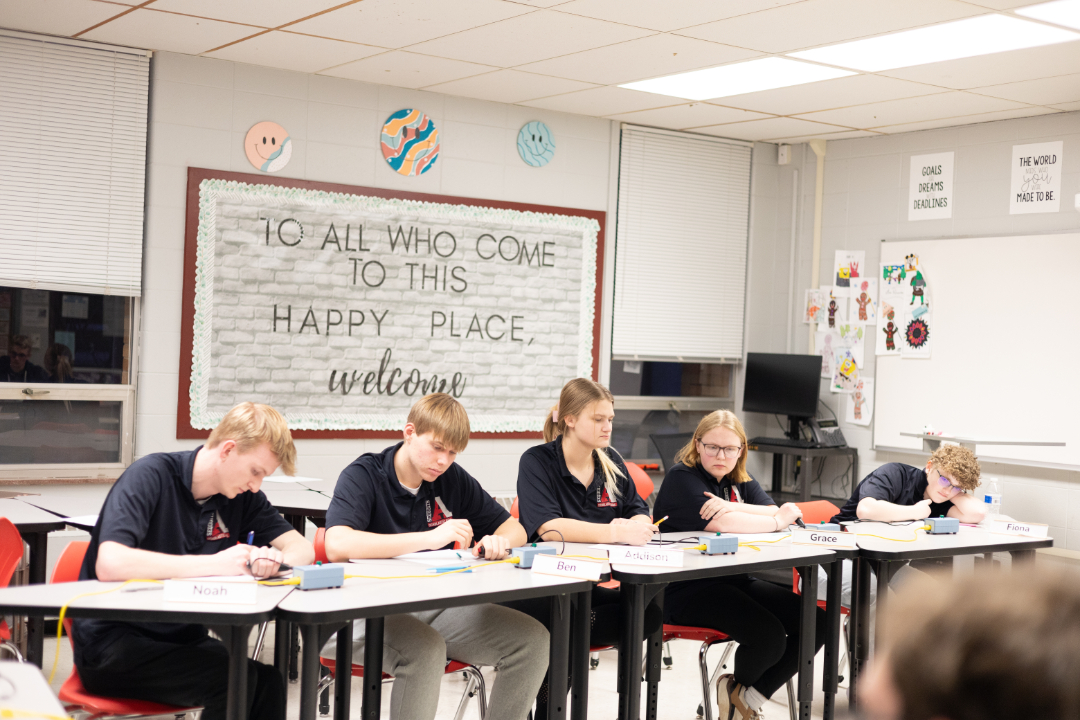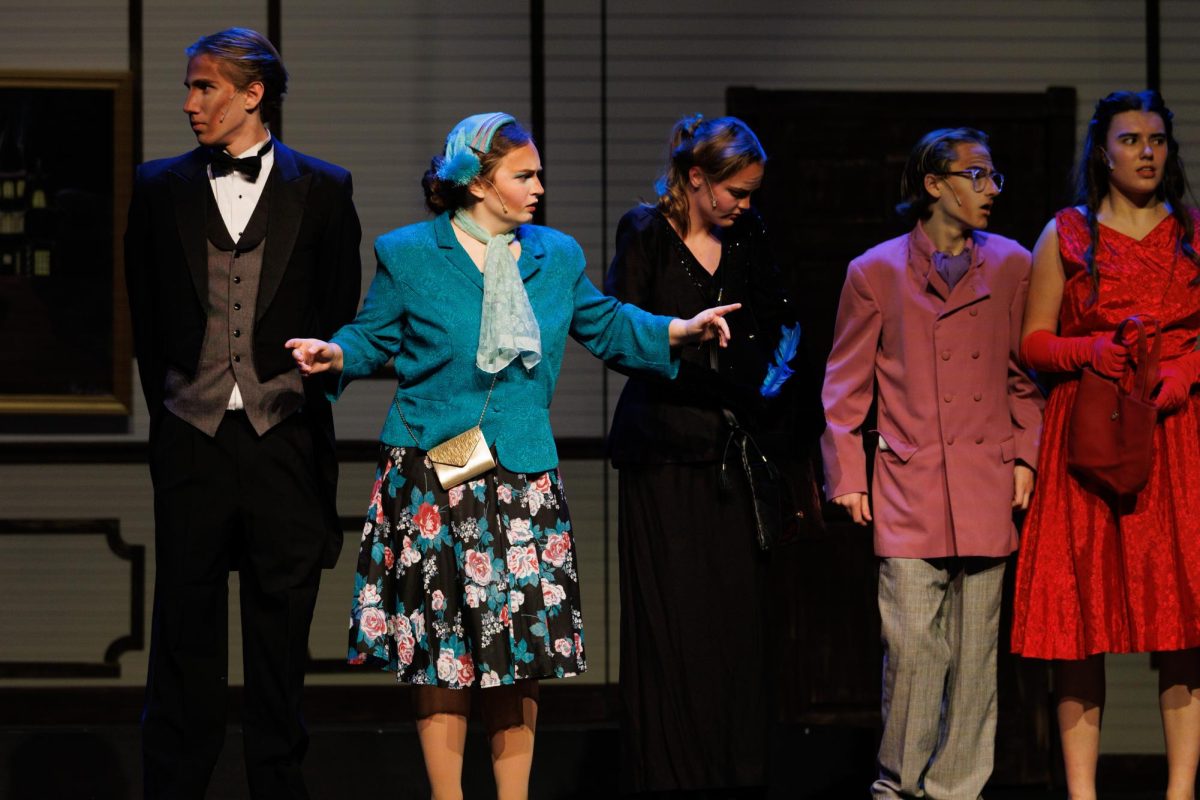Illinois Democracy School is a state-wide program that strives to improve the quality of civic learning, which is teaching young people about their roles and responsibilities within a democratic political system. Antioch Community High School earned the Democracy School title back in 2015 because of its demonstration of incorporating strong civic education and opportunities for students. Every five years, a group of students and staff who are passionate about democratic processes gather to review data on the school’s performance and set goals for improving the 11 pillars of the learning experience and organizational culture.
Social Studies Department Chair Anne Eichman plays a big role in leading this process. After reviewing the goals set in 2015, the group reflected on what has changed and decided to set new goals for the next five years.
“The team has identified service learning, extracurricular activities and the opportunity to learn foundational civic knowledge as some of our strengths,” Eichman said. “Student voice, service-learning and controversial issues are the three areas [we are working to improve].”
Service-learning in particular was identified as a strength, but it is also something the group would like to see be taken even further. While the group recognizes Antioch’s success in extracurricular involvement and student learning, they also see room for improvement in giving students a voice and empowering them to have meaningful conversations with peers on current issues.
“We have to be able to reconcile our different beliefs peacefully and civilly,” senior Nathan Knoll said.
Not only is Knoll focused on teaching students how to be respectful when talking about controversial topics, he also thinks students should learn how to use their voice when it comes to discussing topics that are important to them. One of the biggest flaws he sees in the education system as a whole is the lack of teaching students how important their voice is. Other schools have worked to combat this problem by creating a council where students gather and have a say-so in school decision-making.
“I feel like if we enshrined our students with [this] responsibility, they might start to value their role in the school a little bit more,” Knoll said. “Students also need to give feedback, and there has to be some sort of an exchange. It can’t just all be one way [when it comes to making decisions that impact students].”
Junior Justin Pedersen also views student involvement in political processes as one of the biggest areas of focus. To him, continuing the growth of civic learning is a way to foster a more tolerant student body.
“Once we all are able to use our voices, change is primed to happen,” Pedersen said.
Eichman is thankful for the student leaders Nathan Knoll, Justin Pedersen and Arianna Guerra, as well as staff Emma Craig, Allison Herrmann, Meghan McDonnell, Rebecca Muff, Jaclyn Orlov, Helene Schulze and Madelynn Soberano who are working to renew, maintain and improve ACHS’ Democracy School status.


